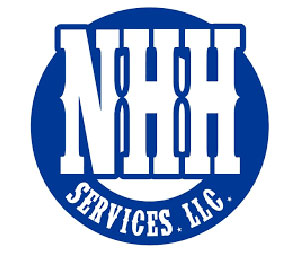10 Interesting Facts About Logistics That You Never Knew
The transportation and warehousing industry of the twentieth century has become the supply chain and logistics sector of the 2020s. Advances in active tracking, RFID inventory monitoring, and artificial intelligence have transformed the ways manufacturing sources parts and supplies, and who handles the logistics of making sure everything arrives where it is needed on time.
We’ll start with some fun facts about logistics that won’t really surprise you
Would you be shocked to learn that logistics is a $1.5 trillion a year industry in the USA? Or that it employs over five million workers?
Here are some other basic facts about logistics of which you may not be aware:
- The least efficient segment of any delivery is the last mile. Delivery trucks have to deal with pedestrian traffic, stop lights, stop signs, and neighborhood hazards as they approach their destination. Drones, however, may create last-mile efficiencies for industrial deliveries.
- RFID chips have improved the accuracy of inventory control in warehouses to about 95 percent. Some inventory, however, still has to be located manually.
- Same-day shipping is the new norm. About two thirds of American retailers offer it.
- Shipping by air is growing. A little under 3 percent of all goods in the US are shipped by air. However:
- Trucks are still the dominant method of shipping in the US. The Bureau of Transportation Statistics BTS) reports that trucking is a $750 billion a year business, and 63 percent of freight in the US is shipped by truck. The BTS reports that shipping by truck was up over 2019 figures by the end of 2020, despite the pandemic.
Working with a Transportation and Logistics Agent is the norm for 90 percent of manufacturers
The overwhelming majority of American manufacturers outsource logistics. The primary advantage of contracting with a freight brokerage is that it is scalable. Businesses don’t have to hire staff, find warehouses, or contract with carriers, or cancel those contracts to handle the variability in consumer demand. Instead, they can rely upon Osage Specialized Transport logistics service, allowing for the seamless transportation of all goods and materials.
Working with a Logistics Agent Improves Customer Service
Contracting with a professional logistics agent eliminates the hassles of physically handling returns and frees vendors to focus on the customer relationship. Companies that outsource logistics report greater end-user satisfaction.
As the US economy pulls out of the pandemic in 2021, logistics is more important than ever. If you’re a supplier to bigger businesses, you know that your customers expect you to be increasingly flexible in an increasingly inflexible world.
The production of a thousand cars that sell for $50,000 each may be delayed because the auto manufacturer hasn’t received delivery on a thousand auto parts that cost $30 each, because the parts manufacturer hasn’t received delivery of a thousand cardboard boxes that cost 30 cents each.
Or, as we are all familiar, the companies that make individual rolls of toilet paper are still getting back to full production after grocery stores were closed in 2020, while the companies that make huge rolls for commercial customers have a surplus.
Adding to the problems posed to producers by the pandemic there is the matter of customer expectations:
Your biggest customers expect their suppliers to become more efficient every year
That’s why they will insist on a one to two percent reduction in their supply costs every year. They assume you will benefit from ever-increased efficiencies in the science of logistics.
Before the pandemic, suppliers often committed to annual reductions in the prices they charge their customers. Now, cost savings from the most skillful use of logistics possibly makes the difference between slim profit margins and selling at a loss.
Every business needs control over their supply chain. Every business needs freight carriers with the know-how to fit into their understanding of their logistics.















